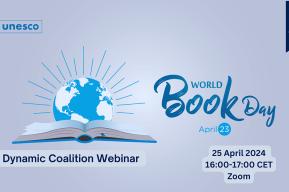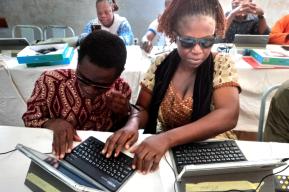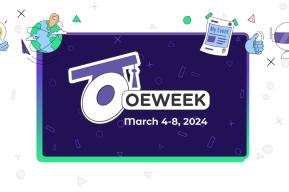Article
Awareness is important but action is essential: Asia-Pacific Regional Consultation on the Open Education Resources Recommendation

The concept of Open Educational Resources (OER) first coined by UNESCO in 2002, refers to learning, teaching and research materials in any format or medium that are in the public domain or are protected by copyright and have been released under an open license, allowing everyone free access, re-use, re-purpose, adaptation and redistribution.
Over 40 participants, mostly education experts and government officials from 19 Asia Pacific countries as well as 5 speakers from other regions, attended a regional online consultation on the 2019 Open Education Resources (OER) Recommendation on 30 November 2022 to exchange good practices and to promote the use of OER at the national level.
Lack of capacity building cited as most important challenge
A real-time poll during the meeting revealed additional challenges. Capacity building was cited by 53% of respondents as the most critical obstacle the region obstructing OER implementation in the region. It remains a challenge for all key education stakeholders to create, access, re-use, re-purpose, adapt, and redistribute OER in accordance with copyright legislation and international obligations. Other responses on challenges included 18% policy development, 6% inclusive OER, 18% sustainability and 6% international cooperation.
Proposals to overcome these barriers included mandatory OER training for teachers’ professional development, as well as a network-community to support the application of OER policies at national and institutional levels.
OER Dynamic Coalition
The participants were encouraged to join the OER Dynamic Coalition which was established following the adoption of the UNESCO OER Recommendation in 2019. Its goal is to help governments in implementing the OER Recommendation by encouraging and strengthening international and regional cooperation in the four areas of the Recommendation: a) capacity building, b) supportive policy, c) inclusive and equitable OER and d) OER sustainability.









